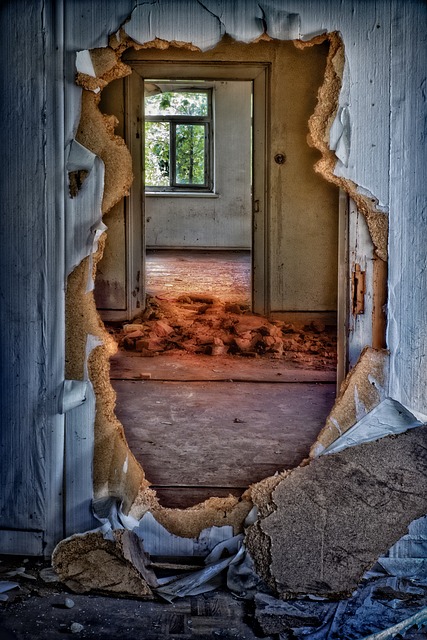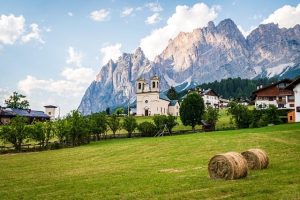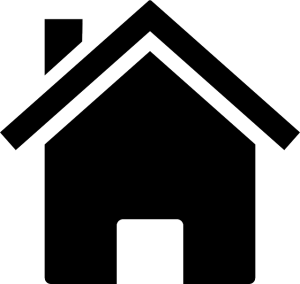Optimizing Nomadic Living: A House Sitting Guide for Snowbirds and Travelers
House sitting is an increasingly popular lifestyle choice for those who wish to travel extensively …….

House sitting is an increasingly popular lifestyle choice for those who wish to travel extensively while maintaining a home base, suitable for snowbirds and globetrotters alike. It involves caring for homes in exchange for accommodation, allowing both property owners and sitters to benefit from the arrangement; owners have peace of mind about their property's care, and sitters enjoy authentic, cost-effective housing. This mutual exchange requires sitters to handle duties such as household chores, security, mail management, and possibly pet care. Successful house sitting necessitates a trustworthy and responsible individual who can manage these tasks remotely, often utilizing smart home technology, and maintain clear communication with the homeowners. Proper management of the property, including record-keeping and regular updates, ensures a positive experience for all parties involved. House sitters gain a unique opportunity to immerse themselves in local living while experiencing new cultures and climates on a long-term basis, making house sitting a viable and enriching option for those seeking an alternative to traditional travel accommodations.
Embarking on a nomadic lifestyle or seeking a cost-effective alternative to traditional accommodations? House sitting may be your perfect solution. This article delves into the nuances of house sitting for snowbirds and travelers, offering a comprehensive guide that illuminates the practice’s benefits, practicalities, and responsibilities. From savings on housing to providing a sense of security for homeowners, house sitting is an invaluable option for those looking to extend their travels or reduce living expenses. Dive into our detailed exploration on how to successfully navigate this rewarding arrangement remotely.
- Understanding House Sitting: A Comprehensive Guide for Snowbirds and Travelers
- The Benefits of House Sitting for Nomadic Lifestyles: Savings, Security, and More
- Practical Tips for Successful House Sitting: Responsibilities, Responsibility, and Remote Management
Understanding House Sitting: A Comprehensive Guide for Snowbirds and Travelers

House sitting has emerged as an alternative lifestyle choice for snowbirds and travelers seeking to explore new destinations while maintaining a residential presence. This practice involves taking temporary responsibility for a homeowner’s property in their absence, offering a cost-effective and community-centric way to reside in desirable locations. For snowbirds, who traditionally migrate seasonally between northern and southern climates, house sitting provides the opportunity to experience a new area with the comforts of home without the burden of relocation or renting. Similarly, for travelers seeking longer-stays than hotels or hostels can offer, house sitting unlocks the door to authentic local living experiences. It’s a symbiotic arrangement where homeowners benefit from having their property cared for and trusted sitters enjoy accommodation that feels like their own. Prospective sitters should familiarize themselves with the responsibilities and expectations involved in house sitting, which include maintenance tasks, security, mail handling, and sometimes pet care. By leveraging reputable house-sitting platforms and networks, both snowbirds and travelers can find suitable opportunities that match their preferences and schedule, ensuring a mutually beneficial exchange. Understanding the nuances of house sitting is crucial for a smooth experience, from understanding local regulations to mastering communication with homeowners. With careful planning and adherence to best practices, house sitting can be an enriching and economical way to travel and live abroad.
The Benefits of House Sitting for Nomadic Lifestyles: Savings, Security, and More

House sitting offers a multitude of advantages for those embracing a nomadic lifestyle, particularly for snowbirds and travelers who are on the move frequently. One of the most compelling benefits is the significant savings it affords. By house sitting, individuals can avoid the hefty costs associated with traditional housing solutions while they are away. This economic perk allows for extended travels without the financial strain of maintaining a home or paying for accommodations in every destination. Moreover, house sitters often enjoy the security of residing in familiar surroundings, which can provide peace of mind knowing that their personal belongings and cherished living spaces are being looked after in their absence. This level of trust and responsibility fosters a symbiotic relationship where homeowners benefit from having a trusted caretaker for their property, and house sitters enjoy the comforts of home as they explore new horizons. The stability that comes with a home base, even if temporary, adds a layer of continuity to an otherwise transient existence, making house sitting an attractive option for those who prefer a slower pace of travel, allowing them to settle into a community and immerse themselves in the local culture. Additionally, house sitters gain access to a variety of homes, from urban apartments to rural estates, each offering its unique set of amenities, which can enhance the overall travel experience with its diversity and richness.
Practical Tips for Successful House Sitting: Responsibilities, Responsibility, and Remote Management

When embarking on a house-sitting arrangement as a snowbird or traveler, it’s crucial to understand the full scope of responsibilities that come with the role. House sitting requires a responsible and trustworthy individual who can act as a caretaker for a property in the absence of its owners. This involves maintaining the home’s security, ensuring routine maintenance tasks are completed, and safeguarding personal belongings. A house sitter must also manage mail and packages, water plants, and perhaps most importantly, keep pets well-cared for, including administering medications if prescribed.
To effectively manage these responsibilities remotely, clear communication with the homeowners is essential. Establish a reliable means of contact in advance, whether it’s through email, a house phone, or a messaging app. Homeowners should provide detailed instructions, schedules, and emergency protocols. Additionally, make use of technology such as smart home systems to monitor and control security, lighting, heating, and cooling systems remotely. Keeping detailed records of activities, repairs made, and any correspondence with the homeowner can facilitate smoother transitions and provide peace of mind for both parties. Regular updates via photos or videos can also keep the homeowner informed about the property’s condition and the well-being of their pets or plants. House sitting as a snowbird or traveler is a mutually beneficial arrangement that relies on responsibility, diligence, and effective remote management. By understanding these practical tips, you can ensure a successful house-sitting experience for all involved.
House sitting emerges as a mutually beneficial arrangement that offers snowbirds and travelers a cost-effective and secure alternative to traditional accommodations. By leveraging the house sitting model, individuals can maintain their homes while away, ensuring peace of mind regarding property safety and upkeep. The practice also extends the reach of travelers, allowing them to explore new destinations without the overhead of rental costs. As our guide and the discussed benefits and practical tips make clear, house sitting is an excellent option for those looking to extend their travels with confidence and savings. Whether you’re a snowbird seeking a warm retreat or a traveler eager to wander without walls, consider house sitting as your companion on the journey.







